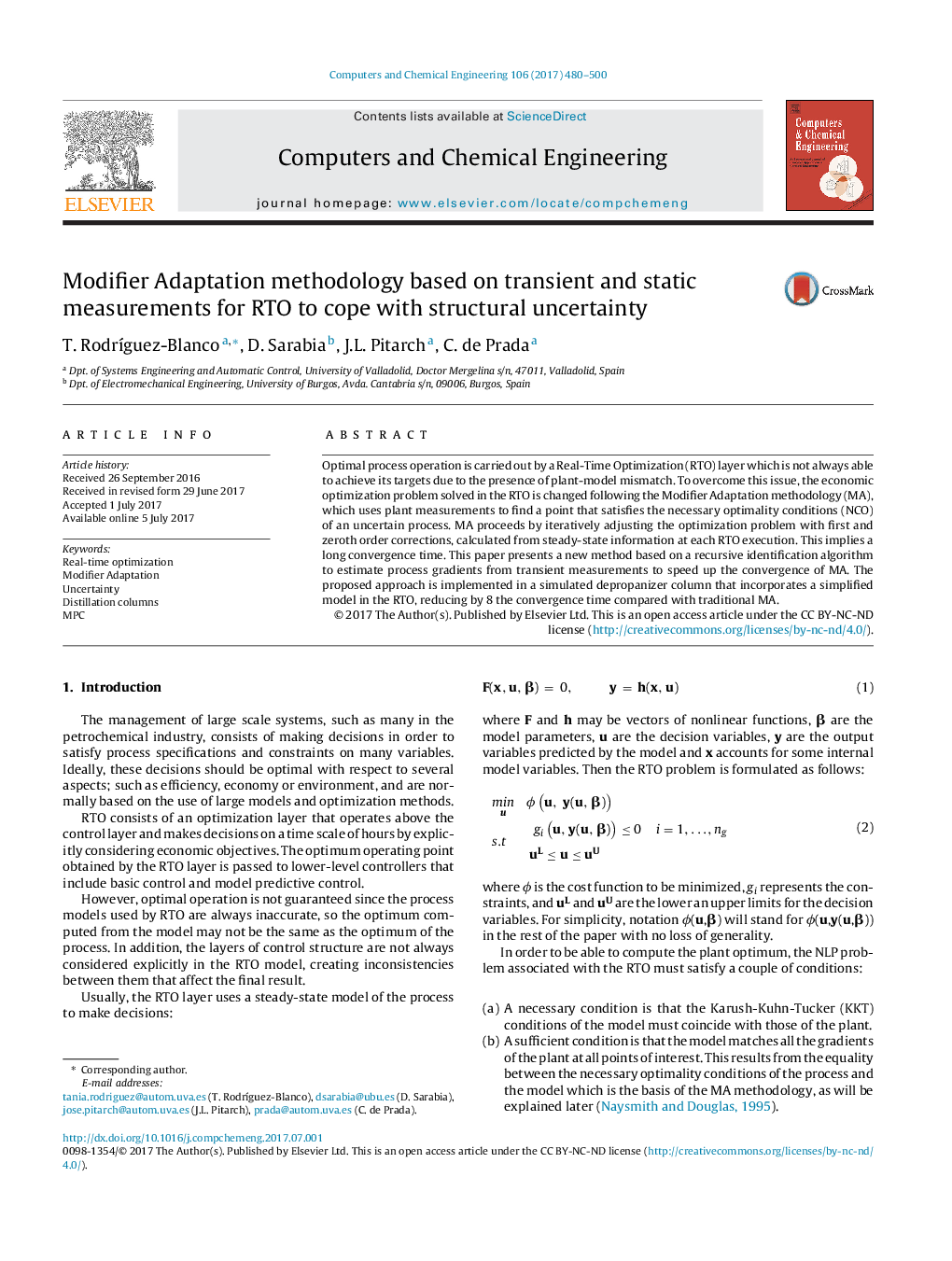| Article ID | Journal | Published Year | Pages | File Type |
|---|---|---|---|---|
| 6469087 | Computers & Chemical Engineering | 2017 | 21 Pages |
â¢Modifier Adaptation methodology uses plant measurements to bring the process to the real optimum despite the presence of uncertainty.â¢A Modifier Adaptation approach is proposed to speed up the convergence to the optimum using transient measurements to estimate the process gradients.â¢The described method is valid for parametric and structural uncertainty.â¢The approach is illustrated through a simulated depropanizer distillation column.
Optimal process operation is carried out by a Real-Time Optimization (RTO) layer which is not always able to achieve its targets due to the presence of plant-model mismatch. To overcome this issue, the economic optimization problem solved in the RTO is changed following the Modifier Adaptation methodology (MA), which uses plant measurements to find a point that satisfies the necessary optimality conditions (NCO) of an uncertain process. MA proceeds by iteratively adjusting the optimization problem with first and zeroth order corrections, calculated from steady-state information at each RTO execution. This implies a long convergence time. This paper presents a new method based on a recursive identification algorithm to estimate process gradients from transient measurements to speed up the convergence of MA. The proposed approach is implemented in a simulated depropanizer column that incorporates a simplified model in the RTO, reducing by 8 the convergence time compared with traditional MA.
